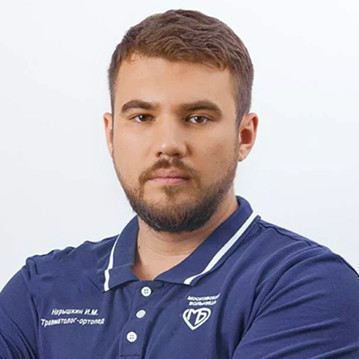Hiccups in a child
Hiccups are an unpleasant phenomenon that often causes concern among parents. Short, quick breaths with a characteristic sound cause discomfort to the child, which he is unable to cope with on his own. Moms and dads need to carefully study the possible causes, since the method of how to stop hiccups depends on this.

specialists

equipment

treatment

A universal method for most cases is to offer the child a warm drink (water, milk, tea). This method allows you to eliminate the narrowing of the glottis due to long, calm sips.
Another most common option is holding your breath.
In case of air swallowing, it is recommended to carry the child in an upright position, waiting for burping. A normal manifestation is burping with excessive air intake during feeding.
A frozen child must be warmed up with a blanket, warm drinks and rubbing.
If there is mental overexcitement, it is worth distracting the child with a new exciting activity and giving him the opportunity to calm down.
Also effective are less popular methods:
- While inhaling, you need to stretch your whole body, and while exhaling, relax
- Chewing one teaspoon of sugar
- Cooling the earlobe
- Stimulating the middle phalanx of the little finger with acupressure

Persistent and prolonged hiccups (every day or throughout the day) can be a sign of a serious illness. If the child's condition is worrisome, you should immediately contact a specialist. It can be a symptom of:
- Gastrointestinal pathologies
- Infections
- Inflammations
- Birth trauma
- Spinal cord injuries
- Abnormalities in the functioning of the nervous system
Parents need to be vigilant so as not to miss a signal of danger. After all, it is always easier to solve a problem at its initial stage.
Our doctors

This award is given to clinics with the highest ratings according to user ratings, a large number of requests from this site, and in the absence of critical violations.

This award is given to clinics with the highest ratings according to user ratings. It means that the place is known, loved, and definitely worth visiting.

The ProDoctors portal collected 500 thousand reviews, compiled a rating of doctors based on them and awarded the best. We are proud that our doctors are among those awarded.
Make an appointment at a convenient time on the nearest date
Price
Other services
Children's otorhinolaryngologist
Pediatric neurologist
Pediatric traumatologist-orthopedist
Pediatric ultrasound doctor
Pediatric endocrinologist
Pediatric pulmonologist
Pediatric gynecologist
Pediatric surgeon
Pediatric urologist-andrologist
Pediatric gastroenterologist
Pediatric cardiologist
Pediatric dermatologist
Children's allergist-immunologist
Pediatric nephrologist
Child psychiatrist
Child psychologist
Pediatric neuropsychologist
The child urinates frequently Why might a child have a headache? Parasites - helminths and lamblia
















































Causes of hiccups in children
Physiologically, this phenomenon is caused by irritation of the vagus nerve. As a result, there is a repeated contraction of the diaphragm.
According to doctors, hiccups are an unconscious and persistent powerful breath that is repeated over a certain period of time with a sharp narrowing of the glottis.
The reasons causing this phenomenon in a child include:
The above reasons are episodic, short-term in nature and should not cause concern in parents. This condition can be easily overcome if you know some techniques.